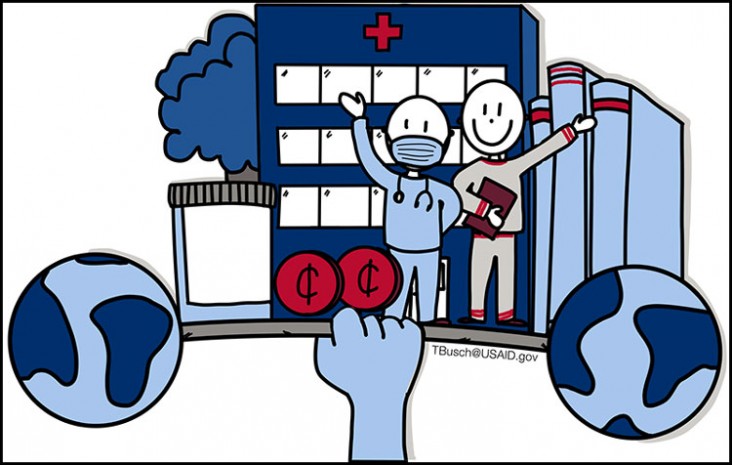- What We Do
- Agriculture and Food Security
- Democracy, Human Rights and Governance
- Economic Growth and Trade
- Education
- Environment and Global Climate Change
- Gender Equality and Women's Empowerment
- Global Health
- Humanitarian Assistance
- Transformation at USAID
- Water and Sanitation
- Working in Crises and Conflict
- U.S. Global Development Lab
Speeches Shim

USAID’s Vision for Health Systems Strengthening (HSS) guides the agency’s work in building resilient health systems that empower countries to provide quality essential services to all and to rebound from unpredictable shocks.
A health system is defined as consisting of all people, institutions, resources, and activities whose primary purpose is to promote, restore, and maintain health.
What does it mean to strengthen a health system?
HSS comprises the strategies, responses, and activities that are designed to sustainably improve country health system performance. USAID’s operational definition of HSS draws the boundaries based on the intent of our efforts and resulting patterns of resource allocation. HSS activities deploy resources specifically to improve one or more of the core health system functions in a sustainable fashion. Our overarching vision is to improve financial protection and access to high-quality services that reach underserved, marginalized, and high-priority groups.
What constitutes good health system performance?
A well-performing health system is one that achieves sustained population health improvement by carrying out the inter-related health system functions of human resources for health; health finance; health governance; health information; medical products, vaccines, and technologies; and service delivery. USAID recognizes four strategic health systems strengthening outcomes that, when taken together, help achieve sustained outcomes in health. These are:
- Financial Protection so that the cost of essential health services permits people to use necessary services without impoverishing them;
- Essential Services so that the package of high-quality prevention, promotion, treatment, and care services are available to all;
- Population Coverage so that those who are poor and underserved have the same access to essential health services as other citizens; and
- Responsiveness so that quality health services are delivered in a timely and confidential manner that ensures dignity and respect for each client.


Comment
Make a general inquiry or suggest an improvement.